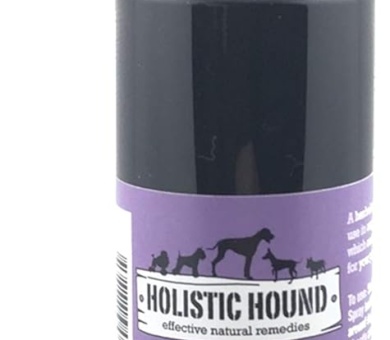Dog Health Supplements: Separating Fact from Fiction in 2025
The pet supplement industry has exploded, with projections suggesting it will surpass $10 billion globally by 2025. As dog owners increasingly prioritize their pets’ well-being, the market is flooded with products promising everything from shinier coats to enhanced longevity. Yet, amid the hype, confusion reigns. Which supplements are truly beneficial, and which are just marketing gimmicks? Let’s debunk common myths and highlight science-backed truths to help you make informed choices.
Myth #1: “All Natural Supplements Are Safe”
Fact Check: Natural doesn’t always mean safe for dogs. While ingredients like turmeric or chamomile can offer benefits, others—such as garlic, macadamia nuts, or certain essential oils—are toxic. Additionally, the lack of stringent FDA regulation (as of 2025, oversight remains limited) means quality varies widely. Some products may contain contaminants or inconsistent dosages.
Tip: Look for third-party certifications like the National Animal Supplement Council (NASC) seal, which ensures adherence to safety and labeling standards.
Myth #2: “More Supplements Mean Better Health”
Fact Check: Over-supplementation can harm your dog. Fat-soluble vitamins (A, D, E, and K) accumulate in tissues, leading to toxicity. For example, excess vitamin D can cause kidney failure. Similarly, excessive calcium in large-breed puppies may worsen joint issues.
Tip: Always follow dosage guidelines and consult your vet before adding supplements, especially if your dog is on medication.
Myth #3: “Supplements Can Replace a Balanced Diet”
Fact Check: Supplements are meant to complement nutrition, not replace it. High-quality dog food formulated by veterinary nutritionists should always be the foundation of your pet’s diet. For instance, omega-3 fatty acids (found in fish oil) can support skin health but won’t compensate for a diet lacking in essential nutrients.
Trend Alert: By 2025, DNA-based diets are gaining traction, tailoring meals and supplements to a dog’s genetic predispositions.
Myth #4: “Human Supplements Are Fine for Dogs”
Fact Check: Dogs metabolize substances differently. Xylitol, a common sweetener in human products, is lethal to dogs. Similarly, iron or zinc levels safe for humans can poison pets.
Solution: Choose species-specific formulas. For example, canine-specific probiotics target gut health without risky additives.
Building Trust with Science-Backed Facts
-
Proven Supplements:
- Joint Health: Glucosamine and chondroitin, supported by decades of research, aid in managing arthritis.
- Omega-3s: EPA and DHA reduce inflammation and support cognitive function.
- Probiotics: Strains like Bifidobacterium animalis improve digestive health and immunity.
-
Vet Guidance Matters:
Vets can identify deficiencies through blood tests and recommend targeted supplements. For example, dogs with chronic kidney disease may benefit from phosphorus binders. -
Quality Over Hype:
Opt for brands with transparent sourcing and USP (U.S. Pharmacopeia) verification. Avoid products with artificial colors or unnamed “proprietary blends.” - Monitor and Adjust:
Track your dog’s response. A supplement that works for one dog may not suit another. In 2025, wearable health tech (e.g., smart collars) can help monitor efficacy in real time.
The Future of Canine Supplements in 2025
- Personalization: Companies like Nom Nom and Embark now offer supplements based on DNA tests, addressing breed-specific risks (e.g., hip dysplasia in German Shepherds).
- Stricter Regulations: The NASC’s updated 2025 guidelines require brands to disclose all inactive ingredients, reducing contamination risks.
- AI-Driven Solutions: Apps analyze your dog’s health data (activity, weight, lab results) to recommend tailored supplement regimens.
Conclusion
Navigating the world of dog supplements requires skepticism and savvy. By prioritizing veterinary advice, evidence-based products, and mindful monitoring, you can enhance your dog’s health without falling for fads. As the industry evolves, staying informed is your best tool. Remember: when in doubt, ask your vet—they’re your partner in ensuring your pup’s tail keeps wagging for years to come.
Final Tip: Bookmark the FDA’s pet supplement recall page and subscribe to your brand’s updates to stay ahead of safety alerts. Your dog’s health is worth the diligence. 🐾









